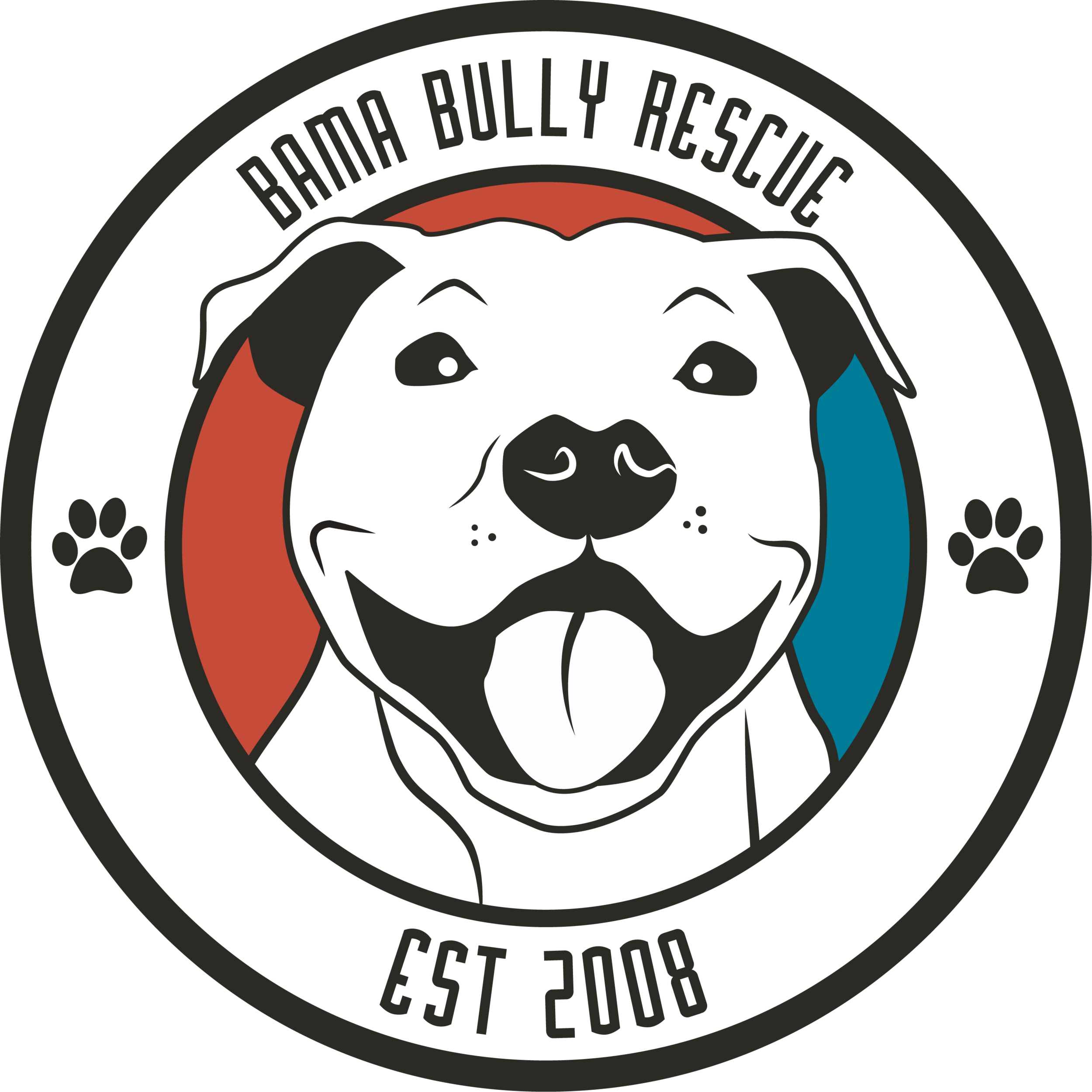Our Stray policy
Understanding Our Stray Policy
We do not have a shelter, kennel or facility in which to keep stray dogs.
Our organization consists of volunteers located throughout the state of Alabama. We have a limited number of foster homes, and we keep our foster parents very busy.
We specialize in Pit Bulls, power breeds and other “bully” breeds that tend to be overlooked for adoption at shelters.
We rescue dogs that really need our help. That means that we only rescue dogs from shelters. Shelter dogs that are not adopted from the shelter face an uncertain future.
If you have rescued a stray, we applaud you. We offer veterinary and spay/neuter assistance to Good Samaritan rescuers. But please understand that we only accept dogs into our rescue that come from a shelter or from a veterinary clinic.
If you want to rehome your dog, we will refer you to Rehome, which is a nationally recognized program available through Adopt-a-Pet. We do not accept owner surrenders.
If you want to rehome your dog because of behavioral problems (animal aggression or human aggression), we will recommend that you work with a trainer. Please do not transfer your problem to another adopter, even if you are honest with them about the dog’s issues. You may be legally liable for any harm that comes to someone because of the dog that you rehomed.
If you have found a stray dog:
take the dog to the nearest animal shelter
If you are able to transport the animal, take them to the nearest animal shelter. Ask them to scan the pup for a microchip. Shelters are required to keep a dog for at least seven days (called a stray hold) in order to give the owners a chance to find the dog. For many owners missing a pet, the animal shelter is the first call they make. Please understand the limitations of shelters and animal care and control agencies. For instance, if you take a badly injured stray dog to animal control you may find that the agency is unable to provide expensive surgery to treat the dog's injuries. Virtually all animal control facilities have severe budgetary or space limitations and must make painful decisions about how best to allocate their inadequate resources. It is important that you know that shelters rely on rescues like ours to take these dogs and raise funds to treat them. But we cannot always say, “yes.” If no rescue can take the dog, the shelter may be forced to euthanize the pup to ease its suffering.
If you don’t want to leave the dog at the shelter, you should at least file a “found dog” report with them. This protects you in case you end up deciding to keep the dog (or you give the dog to a friend); it shows that you made a reasonable effort to find the dog’s owner. If an owner shows up some time later and wants his dog back, you’ll need to be able to prove that this attempt was made in order to protect your rights to the dog.
Some shelters take a photo of the dog for their “found dog” reports and file these online; others simply keep a binder full of the reports, sans photos, on a counter at the shelter. Few people are aware that shelters keep these reports; most people just check the shelter kennels and/or website. It’s uncommon, but reunions have been facilitated through these reports.
if you take the dog to a veterinarian
Before you take an injured animal to a private veterinary hospital for treatment, be willing to assume financial responsibility for the animal. Good care is not cheap, and many veterinarians have many Samaritans in their waiting rooms every year. Anyone who is committed to trying to save injured stray animals should discuss these issues in advance with the veterinarian.
If you take the dog home
If you decide to try to find the owner yourself, without stopping by the shelter, be sure to contact your local animal shelter or animal control office first. This will give you an opportunity to let the appropriate agency know that you have the animal and to provide a description to them, in case the owner contacts them. Also, have the animal scanned for a microchip; this quick ID check could help you find the owner right away. Any veterinary clinic can scan the pup for you.
Before bringing the animal home, make sure you can keep your resident animals separate; the found animal could be sick, fearful or aggressive with other animals. Once you have them safely at your home, take pictures and create a “found pet” flier to post around the area in which the animal was found. Remember, the dog you have found might have loving owners somewhere. Below are some links to help you locate the missing dog's owners. These sites will also allow you to post pictures of a found dog.
If no owner is found
You now face the difficult decision of whether to foster the dog yourself and try to prepare it for adoption by spaying/neutering and providing vaccinations. If fostering the dog is a financial issue, we can help with vet bills. Apply for assistance at spay/neuter assistance or medical assistance.
If you are not able to foster the dog, we recommend that you once again contact your local animal shelter and ask for advice. Hopefully you have already notified the shelter that you found the dog, and have been trying to locate the owner. Please understand that while a shelter is a very stressful temporary home for any pup, the shelter staff will do their best to find an adoptive home for this dog. It is not their intent to harm the pup. If you are unable to foster until an adoptive home is found, this may be your only option.
